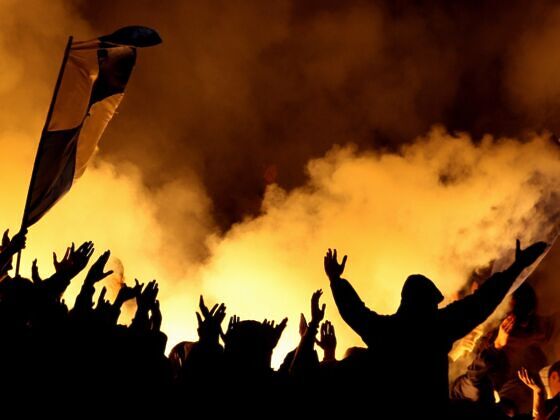On April 3, 2011, the Egyptian club soccer team Zamalek hosted the Tunisian team Club African for an African Champions League match. Towards the end of the game, Zamalek scored, but the officials called the goal off-sides, confirming it with the video play back.
Some reports say hundreds and some say thousands of Egyptian fans–including its most ardent ones nicknamed the Ultras–responded to the call by rushing out of their seats and racing towards the field.
